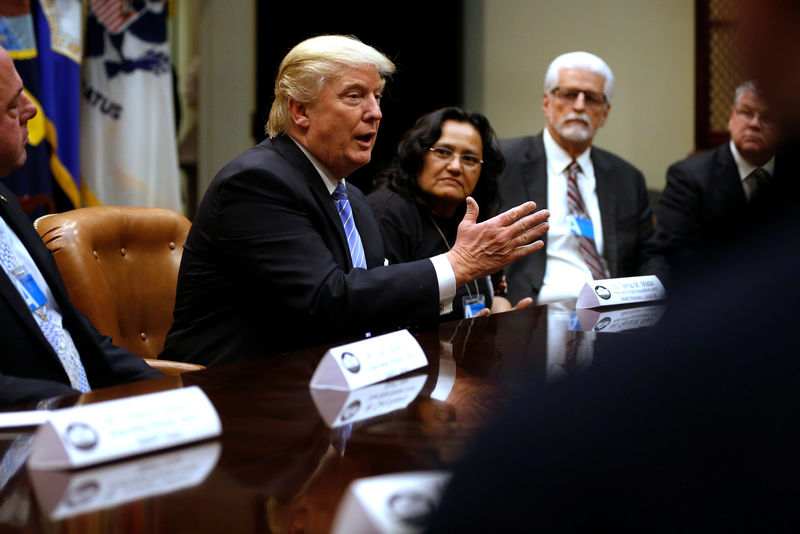By Francesco Guarascio
BRUSSELS (Reuters) - The European Investment Bank, the EU's lending institution, will maintain a target of investing around 20 billion dollars a year to fight climate change over the next five years, it said on Tuesday, sending a warning to climate sceptics.
Climate investment is already about a quarter of EIB total loans. Last year the bank lent 83.8 billion euros ($90 billion), of which 19 billion went to projects to counter climate change.
"We, Europeans, must lead the free world against climate sceptics," the EIB president Werner Hoyer said at a news conference in Brussels.
While he did not mention Donald Trump directly, the new U.S. president has promised to bolster the U.S. oil, gas and coal industries, in part by undoing federal regulations curbing carbon dioxide emissions. He has also suggested pulling out of a global climate change pact signed in Paris in 2015, calling it expensive for U.S. industry.
World temperatures hit a record high for the third year in a row in 2016, the World Meteorological Organisation said last week.
Hoyer said the bank would maintain ambitious targets against global warming. "We aim to provide $100 billion for climate action over the next five years, the largest contribution of any single multilateral institution," he said.
Britain's decision to leave the European Union is adding to EIB's concerns, as it is one of the four main shareholders of the bank, holding about 16 percent of its shares.
Only EU member states can be EIB shareholders. Hoyer said the Brexit impact on the bank "is completely unclear" but he did not rule out the possibility of changing rules to allow Britain to remain a shareholder even after Brexit - an option that would need approval from London and the other 27 EU capitals.
Hoyer said in the two years of Brexit negotiations, expected to start in March, the bank will remain in "limbo".
"We will be missed in the UK if we had to reduce our business there or disappear completely," Hoyer added. Last year, the bank lent to Britain more than 7 billion euros.
He said that, contrary to other large EU states, Britain has no national promotional bank and "relies heavily" on EIB funding for certain investments in infrastructure and other projects.
The EIB already now invests outside the EU, but its lending is mostly concentrated on Europe. Hoyer said Britain could remain a recipient of EIB lending after leaving the EU, but "it is a question of dimension".
He urged negotiators to be constructive and avoid "further damage" to existing projects funded by the bank in Britain.

($1 = 0.9312 euros)